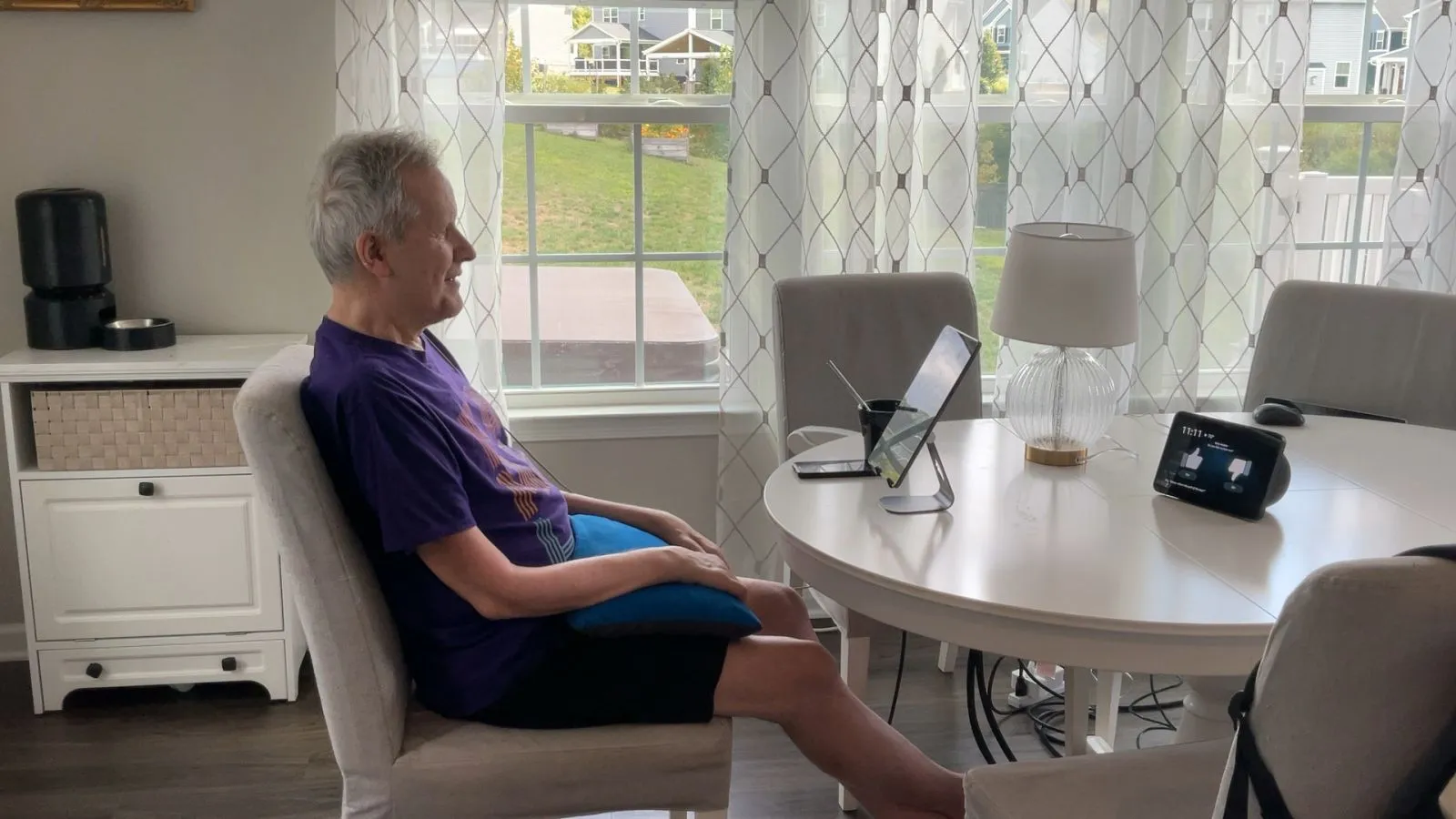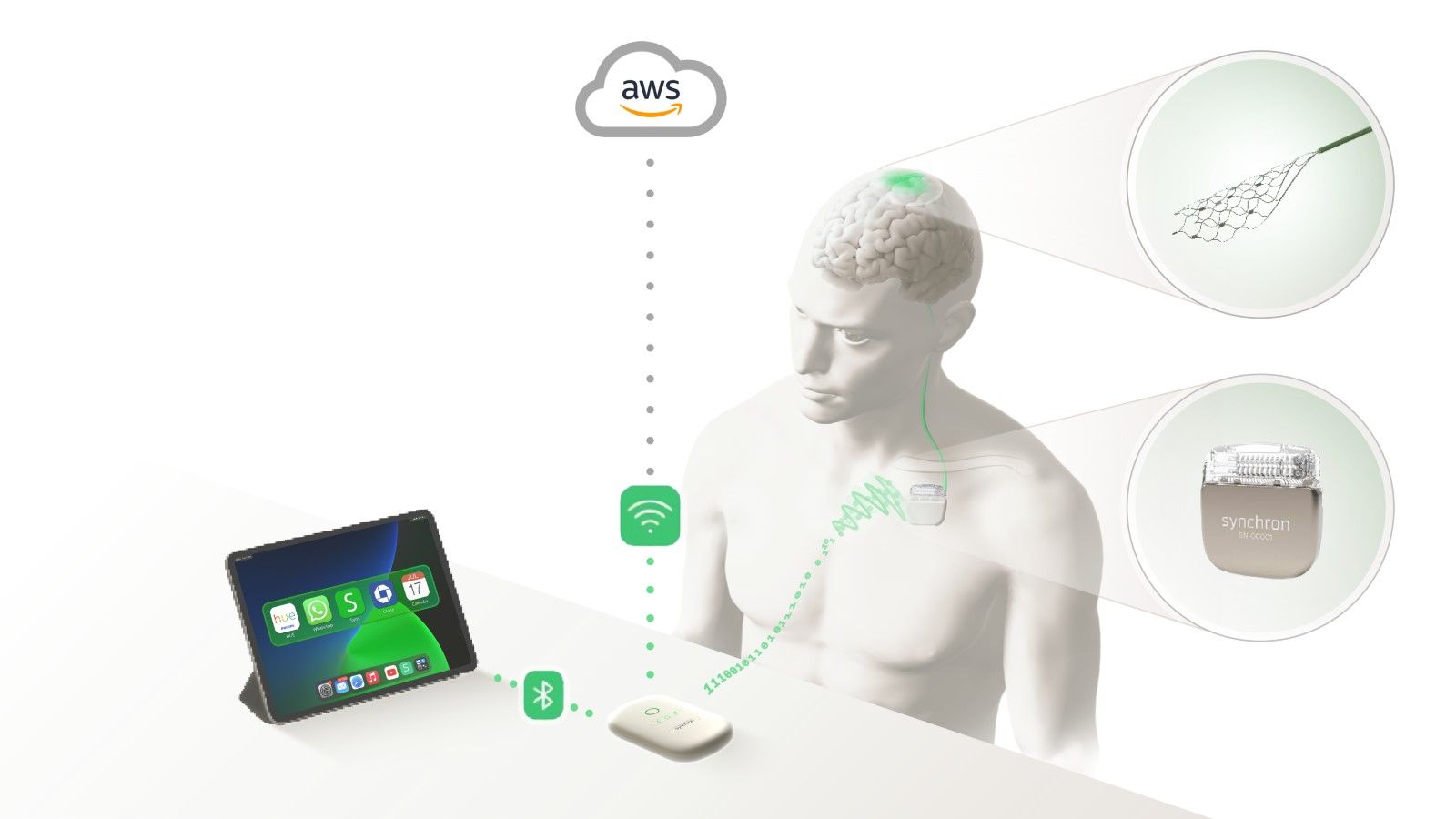This patient with ALS uses Alexa using only his thoughts
Published by Cédric,
Article author: Cédric DEPOND
Source: Business Wire
Other Languages: FR, DE, ES, PT
Article author: Cédric DEPOND
Source: Business Wire
Other Languages: FR, DE, ES, PT
Follow us on Google News (click on ☆)
Thanks to an innovative brain implant, he can now control Alexa, Amazon's assistant, using only his thoughts. This technological breakthrough, developed by the company Synchron, could transform the lives of people suffering from paralysis.

The implant, inserted via a minimally invasive procedure through the jugular vein, captures neural signals without the need for direct brain surgery. It connects to various devices, including Amazon's Fire tablets, allowing Mark to control home appliances and access digital entertainment.
Beyond basic commands such as managing lights and making video calls, the implant also enables online shopping and audiobook playback. The integration of this technology with smart home systems shows unprecedented customization potential for users.
Synchron, led by Thomas Oxley, is already exploring other applications of this brain-machine interface in collaboration with tech giants like OpenAI and Apple. These developments could further expand the capabilities of brain implants.
The company has conducted trials with several participants in both the United States and Australia. It plans to launch a broader trial, aiming to measure the effectiveness of this technology for a wider pool of users.

The competition in the brain-machine interface field is fierce. Companies like Neuralink, founded by Elon Musk, are also racing to offer similar solutions. However, none have yet received widespread approval for commercialization.
Neuralink, for example, recently announced advancements in its own implant, aimed at enabling brain interaction with digital devices. These developments highlight the growing interest in brain-control technologies.
ALS makes these innovations essential. For those affected by this degenerative disease, which impairs mobility and communication, these implants offer a glimmer of hope for regaining some degree of autonomy.
Synchron's technology, by bridging neurotechnology and consumer tools, marks a significant step toward a more independent life for people with severe disabilities.
What is Amyotrophic Lateral Sclerosis (ALS)?
Amyotrophic Lateral Sclerosis (ALS), also known as Lou Gehrig's disease, is a progressive neurodegenerative disease. It targets the nerve cells in the brain and spinal cord, leading to increasing muscle paralysis.
Patients experience a decline in motor functions and the ability to speak, often progressing to complete paralysis. This disease is typically fatal within a few years, with an average survival time of 3 to 5 years after diagnosis.
What is a Brain-Computer Interface (BCI)?
A Brain-Computer Interface (BCI), or brain-computer interface, is a technology that creates direct communication between the brain and an external device. It captures neural signals, often through implanted electrodes, and translates them into commands to control electronic devices like computers or home automation systems.
BCIs hold particular promise for paralyzed individuals, enabling them to interact with digital technologies without the need for conventional forms of communication such as speech or touch.